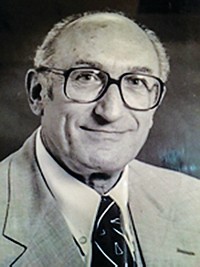Advertisement
Grab your lab coat. Let's get started
Welcome!
Welcome!
Create an account below to get 6 C&EN articles per month, receive newsletters and more - all free.
It seems this is your first time logging in online. Please enter the following information to continue.
As an ACS member you automatically get access to this site. All we need is few more details to create your reading experience.
Not you? Sign in with a different account.
Not you? Sign in with a different account.
ERROR 1
ERROR 1
ERROR 2
ERROR 2
ERROR 2
ERROR 2
ERROR 2
Password and Confirm password must match.
If you have an ACS member number, please enter it here so we can link this account to your membership. (optional)
ERROR 2
ACS values your privacy. By submitting your information, you are gaining access to C&EN and subscribing to our weekly newsletter. We use the information you provide to make your reading experience better, and we will never sell your data to third party members.
Environment
ACS Award For Affordable Green Chemistry
by Jeff Johnson
January 14, 2013
| A version of this story appeared in
Volume 91, Issue 2
Sponsored by Dow Chemical and endowed by Rohm and Haas
What became a valuable, sustainable, and unique compound began with what DuPont research chemist Hari B. Sunkara calls a “bootleg project,” a slight sideline from his primary research focus at the company.
It was 1997 and Sunkara had just been hired by DuPont after working for a couple of years at the National Aeronautics & Space Administration’s Marshall Space Flight Center, exploring chemistry and microgravity. At DuPont, he began working to perfect the technology to make the company’s polytrimethylene terephthalate (PTT), later trademarked as Sorona. This polyester is used to make residential and commercial carpets, apparel, and automotive fabrics.
Sorona is made partially from agricultural feedstocks, primarily corn, as well as petrochemicals. It contains up to 37% renewable materials to improve sustainability, reduce greenhouse gas emissions, and cut oil dependency compared with conventional PTT.
As a sideline, with DuPont’s support, Sunkara began developing a more sustainable intermediate compound, made from 100% renewable feedstock. Later, the polyol would be registered as Cerenol.
Polyols were traditionally produced via the ring-opening polymerization of the cyclic ether oxetane, explains Ray W. Miller, who until recently was DuPont’s Cerenol global business manager. Sunkara developed a less hazardous one-step, acid-catalyzed condensation polymerization process that uses 1,3-propanediol from corn-derived glucose as the basic feedstock. The process consumes 30% less energy and generates 40% less greenhouse gas emissions compared with petroleum-based polyol.
Cerenol has applications in a diverse line of biobased products and markets, including coatings, ink-jet inks, lubricants, personal care products, and thermoplastic elastomers.
“Sunkara is one of the best scientists I have known during my 37-year career at DuPont,” Miller notes, adding that his research has put DuPont in an excellent position to expand Cerenol use to new bioproducts in the future.
Sunkara has obtained more than 100 patents on Cerenol polyols and their applications. This portfolio helped DuPont develop a business model based on licensing the polyols and the end-use patents to interested parties globally.
Because of Sunkara’s work, DuPont has been recognized with many industry awards. For example, in 2009 Cerenol was selected during the Center for the Polyurethanes Industry’s global conference as the most innovative new ingredient for the urethanes industry. Cerenol polyols won the Environmental Stewardship Award and the Kirkpatrick Chemical Engineering Achievement Award also in 2009.
In college, Sunkara was drawn to the real-world aspects of chemistry. “I like chemistry because I can see the actual reactions taking place in the lab,” he says. “It is one of the few sciences where researchers can see what is happening with their own eyes.”
Sunkara, 52, grew up in a small town in India and is the first in his family to receive a graduate degree. He attended Sri Krishnadevaraya University in India, earning an M.S. in chemistry. In 1989, he received a doctorate in physical chemistry from the University of Madras.
That same year, he moved to the U.S. and did a postdoc at Oklahoma State University. In 1994, he did a second postdoc at the University of Pittsburgh.
Sunkara says he is thrilled with the ACS award and the recognition of the value of his scientific achievements by the broad chemical community outside of DuPont.
He will present the award address before the ACS Division of Cellulose & Renewable Materials.





Join the conversation
Contact the reporter
Submit a Letter to the Editor for publication
Engage with us on Twitter